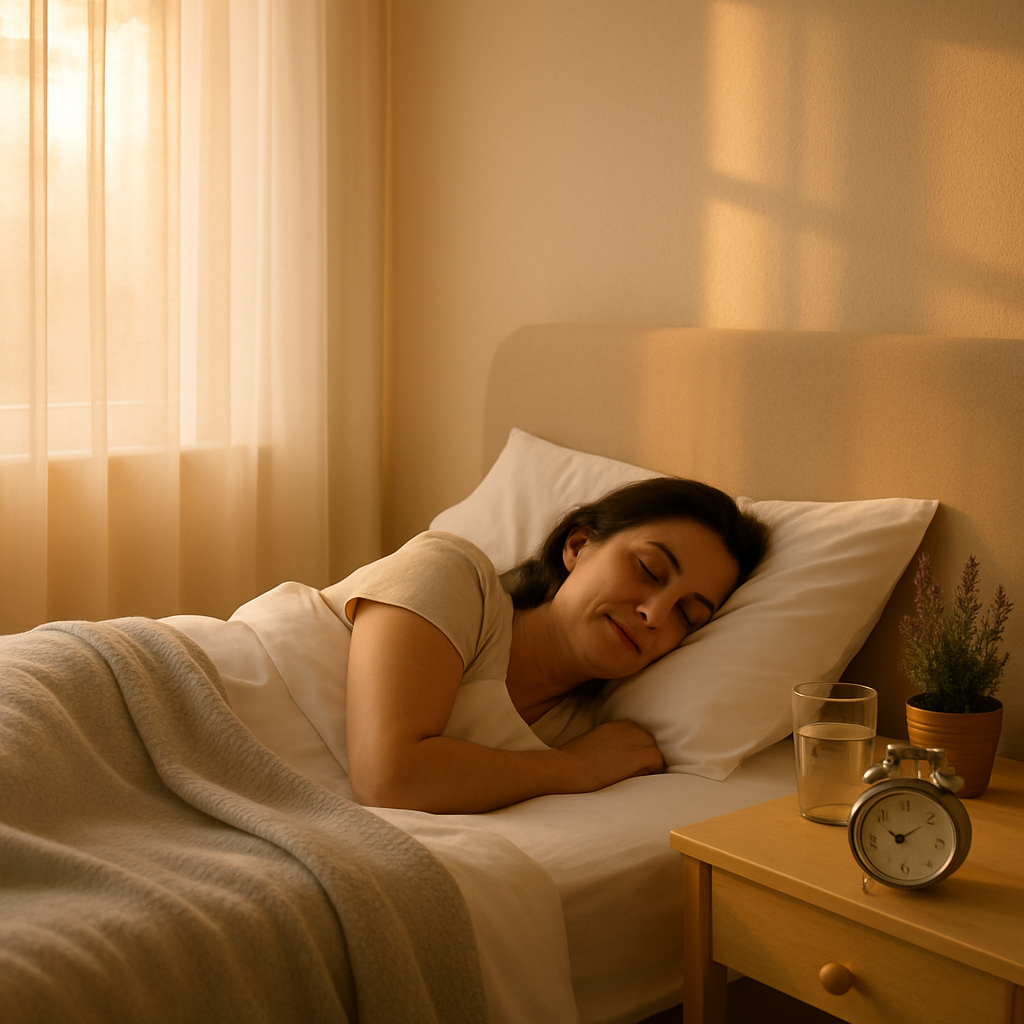
Sleep has fascinated scientists for decades, yet many of us still struggle to get enough quality rest. The average adult needs 7-9 hours of sleep per night, but approximately one-third of Americans regularly fall short of this target. Beyond just feeling tired, inadequate sleep affects virtually every aspect of health from immune function to cognitive performance, mood regulation, and even weight management.
Recent research has revealed that sleep isn’t merely a passive state of rest but an active process during which our bodies perform critical maintenance functions. During deep sleep, the brain flushes out toxins, consolidates memories, and repairs neural pathways. Meanwhile, the body releases growth hormones, repairs tissues, and strengthens the immune system.
I’ve been running since turning 50 (fifteen years ago now!), and I can tell you firsthand that my performance suffers dramatically when I don’t sleep well. What started as a way to fight my expanding waistline became a passion, but I quickly learned that no amount of training could overcome the effects of poor sleep. My race times were consistently worse after restless nights, and recovery took much longer.
The Sleep Cycle and Why It Matters
Sleep occurs in cycles lasting approximately 90-110 minutes, with each cycle containing several distinct stages. Understanding these stages helps explain why quality matters as much as quantity.
Light sleep (Stages 1-2) serves as a transition period. Your heart rate slows, body temperature drops, and muscles relax. Though lighter than other stages, these phases still contribute to rest and recovery.
Deep sleep (Stage 3) is when your body performs most of its physical restoration. Blood pressure drops, blood flow increases to muscles, tissue growth and repair occurs, and the immune system strengthens. This stage is particularly important for physical recovery something I’ve noticed acutely after my longer training runs.
REM sleep, characterized by rapid eye movements and increased brain activity, is when most dreaming occurs. This stage supports cognitive functions like learning, memory consolidation, and emotional regulation. Research from the University of California found that REM sleep helps process emotional experiences, potentially explaining why we often feel more balanced after a good night’s rest.
A healthy sleep pattern includes 4-6 complete cycles per night, with proportionally more deep sleep in earlier cycles and more REM sleep later in the night. This explains why cutting sleep short by even an hour can have disproportionate effects on certain aspects of health.
My running buddy Frank (who’s 70 and still outruns me on hills) tracks his sleep stages with a wearable device. He swears that monitoring his deep sleep percentages helps him adjust his training schedule. When his deep sleep drops below 20% of total sleep time for several nights, he scales back his workout intensity. I was skeptical until I tried it myself and noticed clear patterns between my sleep quality and recovery capacity.
Practical Strategies for Better Sleep
Consistency trumps almost everything else when it comes to sleep quality. Going to bed and waking up at roughly the same times even on weekends helps regulate your body’s internal clock. This consistency reinforces your circadian rhythm, making it easier to fall asleep and wake up naturally.
Your sleep environment matters more than you might think. A dark, cool, quiet room provides optimal conditions. Blackout curtains, earplugs, or white noise machines can help minimize disruptions. The ideal bedroom temperature for sleep is around 65°F (18°C), though personal preferences vary.
I struggled with this for years until I finally invested in room-darkening shades. My bedroom faces east, and the early summer sunrise was waking me at 5:30 AM not ideal when I’d been up late the night before. The difference was immediate and significant. My sleep tracker showed nearly an hour more sleep on average after making this simple change.
The hours before bedtime significantly impact sleep quality. Creating a wind-down routine signals to your body that it’s time to prepare for rest. This might include:
- Dimming lights throughout your home
- Avoiding screens for at least 30 minutes before bed (the blue light suppresses melatonin production)
- Light stretching or gentle yoga
- Reading a physical book (not an e-reader)
- Taking a warm bath or shower
- Practicing meditation or deep breathing exercises
What you consume affects sleep more than many realize. Caffeine has a half-life of approximately 5-6 hours, meaning half the caffeine from your 3 PM coffee is still active at 9 PM. Alcohol might help you fall asleep faster but disrupts sleep architecture, reducing REM sleep and causing more awakenings during the night.
Large meals close to bedtime can cause discomfort and indigestion. However, a light snack combining complex carbohydrates and protein might help promote sleep. Options include yogurt with a small amount of granola, a banana with a tablespoon of peanut butter, or a small serving of oatmeal.
Physical activity generally improves sleep quality, but timing matters. Exercise raises body temperature and stimulates the nervous system. Most people benefit from completing vigorous workouts at least 3-4 hours before bedtime. However, gentle movement like evening walks or stretching can actually prepare the body for rest.
When I first started running, I thought evening workouts would tire me out and help me sleep better. Wrong! I’d be wired for hours afterward. Now I do my runs in the morning or early afternoon, and my sleep has improved dramatically.
Managing stress and racing thoughts presents perhaps the biggest challenge for many. Cognitive techniques can help:
- Keep a notepad by your bed to jot down thoughts or worries that arise
- Practice “thought stopping” by mentally saying “stop” when rumination begins
- Use guided imagery to focus on peaceful scenes rather than problems
- Try progressive muscle relaxation, tensing and releasing muscle groups sequentially
Some sleep disturbances warrant medical attention. Sleep apnea, characterized by pauses in breathing during sleep, affects approximately 22 million Americans and significantly impairs sleep quality. Symptoms include loud snoring, gasping for air during sleep, morning headaches, and excessive daytime sleepiness. If you suspect sleep apnea or another sleep disorder, consult a healthcare provider. Proper diagnosis and treatment can dramatically improve sleep quality and overall health.
Technology offers both challenges and solutions for sleep. While screens before bed can interfere with melatonin production, certain apps and devices can help monitor and improve sleep patterns. Sleep tracking apps provide insights into sleep duration and quality, though their accuracy varies. Some smart mattresses adjust firmness based on sleeping position and body temperature. White noise apps can mask disruptive sounds.
Certain supplements may support better sleep for some individuals. Melatonin, a hormone naturally produced by the pineal gland, helps regulate sleep-wake cycles and is available as a supplement. Magnesium plays a role in relaxing muscles and calming the nervous system. Valerian root has been used traditionally for insomnia. Always consult a healthcare provider before starting any supplement regimen, particularly if you take other medications.
I tried melatonin briefly but found it left me groggy the next morning. What worked better was a magnesium supplement about an hour before bed it seems to help my muscles relax after training days and doesn’t leave me feeling drugged.
Sleep needs change throughout life. Children and teenagers need more sleep than adults due to their developing brains and bodies. Older adults often experience changes in sleep patterns, including more fragmented sleep and less deep sleep. Pregnancy, menopause, and certain medications can all affect sleep quality and quantity. Understanding these changes helps set realistic expectations and adapt sleep strategies accordingly.
The relationship between sleep and mental health works both ways. Poor sleep contributes to anxiety and depression, while these conditions often disrupt sleep. Breaking this cycle might require addressing both simultaneously. Cognitive behavioral therapy for insomnia (CBT-I) has proven particularly effective, often outperforming sleep medications in the long term.
Good sleep remains one of the most undervalued aspects of health. Unlike diet and exercise, which receive abundant attention, sleep often gets sacrificed to accommodate busy schedules. Yet adequate, quality sleep provides the foundation for virtually every other aspect of well-being. By understanding sleep cycles, creating supportive environments and routines, and addressing specific challenges, most people can significantly improve their sleep quality.
The benefits extend far beyond simply feeling less tired. Better sleep can improve cognitive function, emotional resilience, physical performance, immune function, and even longevity. Perhaps it’s time we started treating sleep not as a luxury or inconvenience, but as the essential biological function it truly is one that deserves both our attention and our respect.

